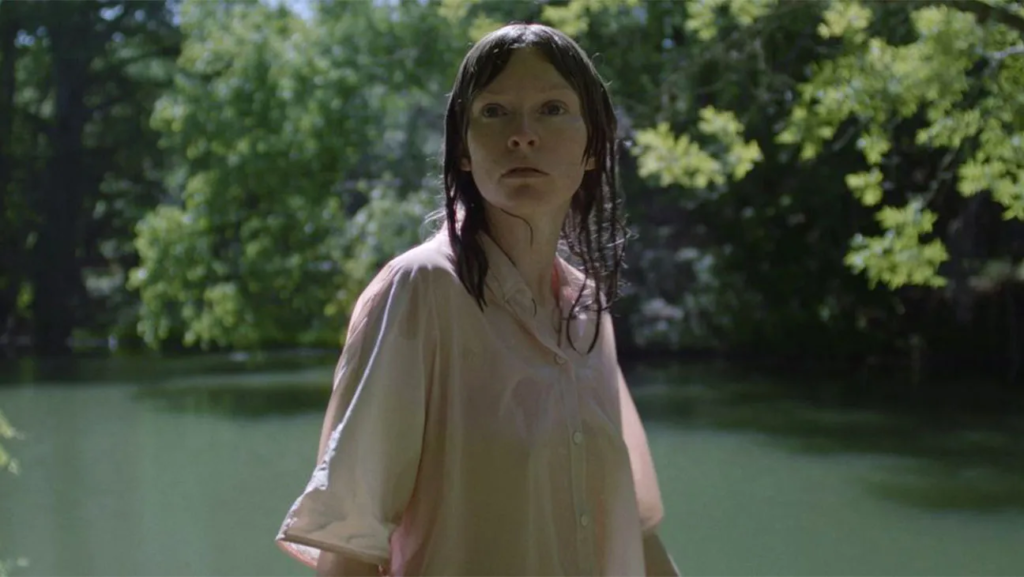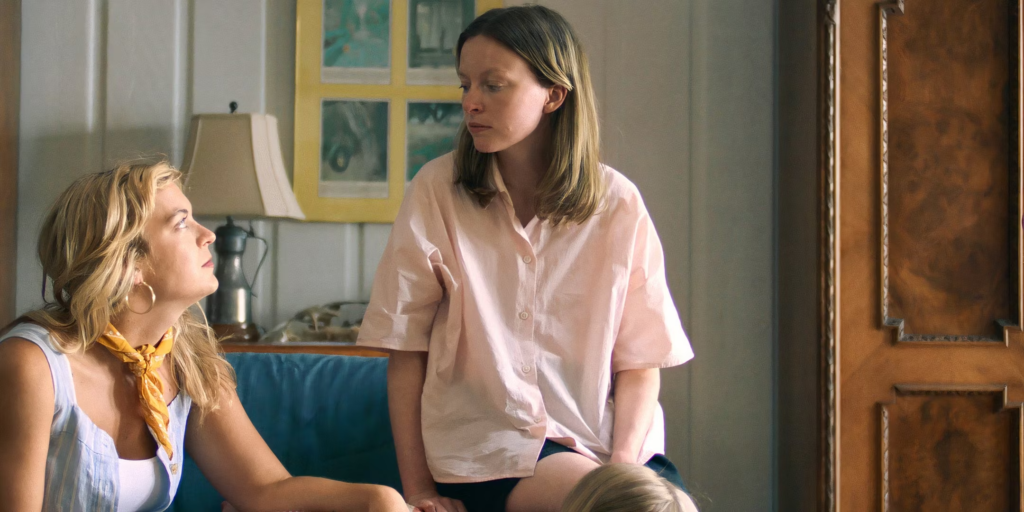Director: Lucy Kerr
Writers: Lucy Kerr, Rob Rice, Karlis Bergs
Stars: Rachel Alig, Deragh Campbell, Katie Folger
Synopsis: A sprawling family’s futile attempts at capturing a family photo take a dreamlike turn when the matriarch vanishes and one daughter becomes desperate to find her.
One naturally expects that a film with a title like Family Portrait (2023) will function as an incisive dissection of the suffocating impact that bourgeois conventions can have on familial relations and social bonds. There’s simply no chance that it won’t come freighted with a tone of semi-ironic detachment and a slightly disaffected worldview. In-the-know cinephiles who have already caught up with the acclaimed short films that Lucy Kerr has been churning out in recent years will already have a sense of her very specific stylistic and thematic preoccupations going into the film. The same cannot be said for individuals who might be expecting something even more elliptical or even, as is the trend nowadays, meta-textual. Kerr’s work feels oddly timeless in its freshness and simplicity. There is a purity to the images that she crafts that stays with you long after a first viewing of any of her output.

With this, her first feature film, she looks to break into the festival circuit and extend her reach beyond short-form storytelling. In loose terms, the film chronicles a day in the lives of the members of a large, wealthy extended family. They gather frequently to show off their individual accomplishments and boost their social status within the familial structure but appear incapable of feeling or displaying completely unselfish love. Their desire to take a family photo together is complicated by the disappearance of the family’s matriarch. As the day goes on, a harried young daughter, Katy (Deragh Campbell), becomes increasingly fixated on her mother’s sudden, unexpected absence. Her desperate attempts to track her down take on a dreamlike, unnerving quality as it becomes clear that these efforts may not yield tangible results.
The film’s rigid and precise, yet associative, editing style seemingly calls back to the early days of the Berlin School movement. Kerr’s touch is less delicate than that of, say, Angela Schanelec but she nevertheless finds a way to put her own spin on aesthetics that have traditionally been deeply rooted in a German cultural context. In spite of its European arthouse trappings, Family Portrait is the unmistakable product of an American artist hoping to capture something of the enigmatic nature of “The South” as a concept. The affluent Texan milieu that these characters inhabit is regarded with a cool objectivity by Kerr, who steadfastly refuses to condemn or pass judgment on the figures at the center of this tale. Her efforts to weave distancing effects into her storytelling repertoire could have felt like the reductive, highly imitative work of a recent film school graduate, but her point of view has been developed and refined enough to ensure that these techniques are employed with great rigor. This is more than just a proof-of-concept piece that allows Kerr to prove that she has sophisticated taste in contemporary arthouse cinema (although, to be fair, it does seem to indicate that fact).

Kerr’s willingness to allow Family Portrait cling to its American identity while still dipping its toe in the pool of European affectations robs it of the tension that dominates most attempts to craft “American arthouse cinema” but also frees it from certain expectations. This playful, totally unfettered quality extends to Kerr’s morally ambiguous, occasionally discomfiting consideration of the natural landscape that surrounds the family and the effect that it has on their behavior. Far from taking the easy way out and drawing obvious contrasts between the stilted, artificial narrative of strained family dynamics and the wild, untamed beauty of nature – Kerr hints at the idea that human beings, and their egos, can only be contained by the overwhelming force of the natural environment. To be in awe of the clear, impenetrable surfaces of the lakes that surround you is to know how small and insignificant you really are in the grand scheme of things. None of the members of this family can come to terms with the fact that their place in the universe is not as grandiose as they would have hoped it could have been. It is only when forced into a position of submission in the face of the overwhelming force and cruelty of the natural environment that we can actually gain a sense of perspective on our lives.





